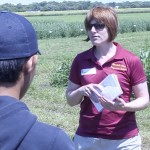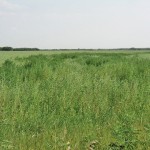To help keep herbicide-resistant weeds at bay, some older soil-applied products are rejoining the fight. At the 2015 Crop Diagnostic School, Jeanette Gaultier, pesticide use specialist with Manitoba Agriculture, Food and Rural Development, talks about which herbicide-resistant weeds producers should watch for and what they need to consider before choosing a herbicide for their situation.





